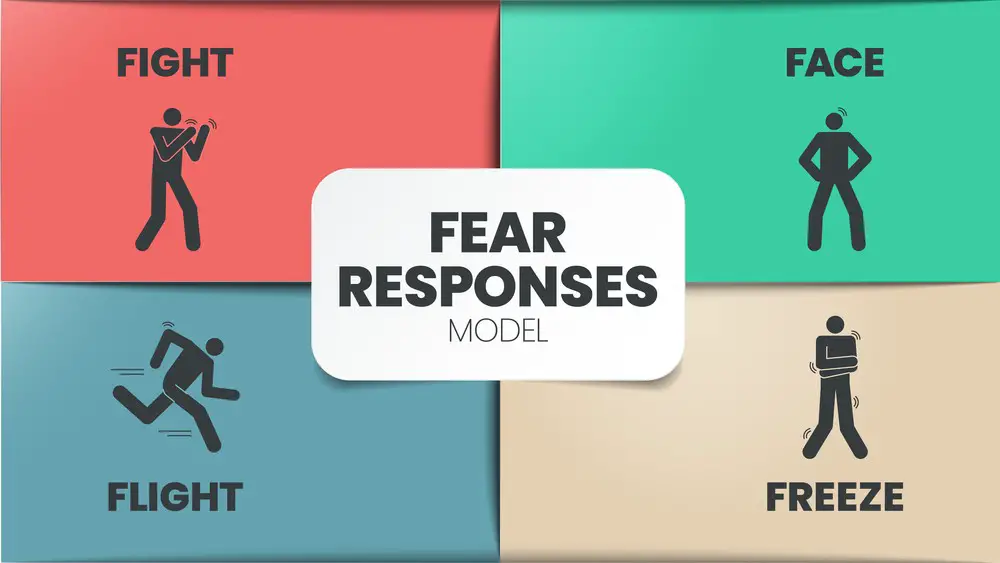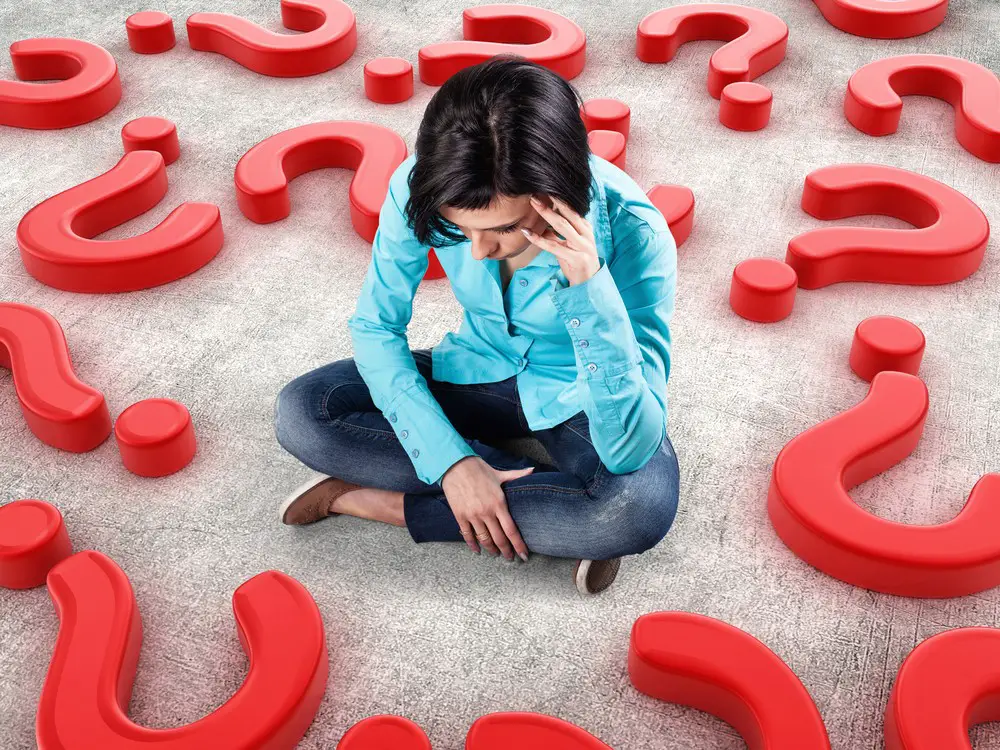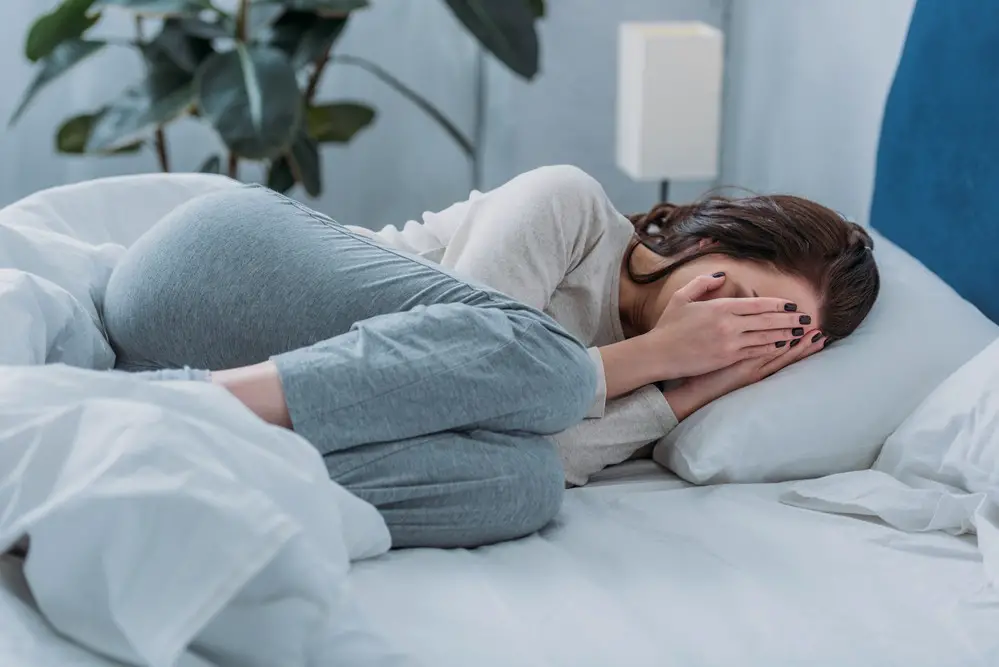As a BetterHelp affiliate, we receive compensation from BetterHelp if you purchase products or services through the links provided
Individuals with mental health issues may question whether anxiety qualifies as a disability. Anxiety disorders are prevalent worldwide and affect millions of people. This article will explore various anxiety disorders, including generalized anxiety disorder, panic disorder, and social phobia.
We will also discuss the signs and symptoms of these mental disorders, including sleep disturbance and obsessive-compulsive behaviors. Furthermore, we’ll explore how anxiety affects people in their daily lives and examine whether or not it can be classified as a disability under certain circumstances.
Finally, you will learn about effective treatment options for managing anxiety symptoms and when to seek professional help. By understanding more about this complex topic – “is anxiety a disability” – those affected by these mental health challenges can make informed decisions regarding their well-being.
Table of Contents:
- What is Anxiety?
- The Nature of Anxiety
- Types of Anxiety Disorders
- Signs & Symptoms of Anxiety
- How Does Anxiety Affect People?
- Is Anxiety a Disability?
- Treatment Options for Anxiety
- When to Seek Help
- FAQs in Relation to Is anxiety a Disability
- Conclusion
What is Anxiety?

Anxiety is an emotion of dread, concern, and disquietude that can span from moderate to extreme. It is a normal emotion that everyone experiences at some point. However, when it becomes excessive and persistent, it can interfere with daily activities and be disabling. In this section, we will discuss the nature of anxiety and how it affects people’s lives.
The Nature of Anxiety
Anxiety is our body’s natural response to stress or perceived danger. It helps us stay alert and focused during challenging situations. For example, you might feel anxious before giving a presentation or going on a first date – these are typical instances where experiencing anxiety would be considered normal.
However, for some individuals, anxiety may become overwhelming or chronic without any apparent reason. Excessive anxiety, however, can have a debilitating effect on everyday life and impair one’s ability to carry out normal activities.
Difference Between Normal Worry & Excessive Anxiety
- Normal worry: Temporary nervousness or apprehension due to specific events (e.g., exams).
- Excessive anxiety: Persistent feelings of dread even when there isn’t an immediate threat present; significantly impacts daily functioning.
Fight-or-Flight Response & Anxiety
The fight-or-flight response plays a significant role in the experience of anxiety. When faced with potential danger, our bodies release adrenaline, which prepares us to confront the situation (fight) or escape it (flight). The fight-or-flight response, which is key to survival, may be triggered inappropriately in cases of heightened anxiety, even when no actual danger exists. As a result, individuals with chronic anxiety often feel constantly on edge and struggle to relax.
Understanding the nature of anxiety and how it affects people can help us empathize with those suffering from it. It also allows us to recognize when we or someone we know might need professional support. The following sections will explore different types of anxiety disorders and their signs and symptoms.
Anxiety is a common emotion experienced by everyone, but when it becomes persistent and excessive, it can be disabling. Comprehending the diverse uneasiness issues is basic to recognizing successful treatment choices.
Anxiety is a natural response to stress or danger that can become excessive and disabling. The fight-or-flight response plays a significant role in anxiety, but chronic anxiety may trigger this response even when no real threat exists. Comprehending the essence of anxiety and its effects on everyday performance can aid in recognizing when expert assistance is necessary.
Types of Anxiety Disorders
Anxiety disorders are not a one-size-fits-all condition. There are several types, each with its own unique set of symptoms and challenges. Understanding the different types can help you manage your anxiety or support someone struggling.
Generalized Anxiety Disorder (GAD)
Generalized Anxiety Disorder, or GAD, is characterized by excessive worry about everyday situations and events. People with GAD may constantly worry about their health, finances, relationships, or work, even when there’s no apparent reason for concern.
Panic Disorder
Panic disorder involves sudden episodes of intense fear that trigger severe physical reactions such as heart palpitations, sweating, trembling, shortness of breath, and feelings of impending doom. These panic attacks can occur unexpectedly without any obvious cause.
Social Anxiety Disorder
Also known as social phobia, Social Anxiety Disorder (SAD) causes extreme self-consciousness in social situations due to an overwhelming fear of being judged negatively by others. This often leads to avoidance behaviors like avoiding public speaking engagements or parties where they might be scrutinized.
Obsessive-Compulsive Disorder (OCD)
Obsessive-compulsive disorder (OCD) is characterized by unwanted thoughts (obsessions) and repetitive behaviors (compulsions) that the person feels driven to perform. These compulsions can include excessive hand washing, checking locks or appliances repeatedly, and arranging items in a specific order.
Post-Traumatic Stress Disorder (PTSD)
Post-traumatic stress disorder is an anxiety disorder that develops after experiencing or witnessing a traumatic event such as natural disasters, accidents, abuse, or military combat. Symptoms of PTSD may include flashbacks, nightmares, emotional numbness, and avoidance of trauma reminders.
Specific Phobias
A specific phobia is an intense fear of a particular object or situation, like heights (acrophobia), enclosed spaces (claustrophobia), spiders (arachnophobia), etc. People with specific phobias often go to great lengths to avoid their feared objects or situations.
By recognizing the different types of anxiety disorders, one can determine their needs and seek treatment accordingly. Anxiety disorders are mental health conditions that can cause sleep disturbance and other symptoms affecting daily life. While anxiety disorders can be challenging to manage, there are effective treatments available that can help you live a fulfilling life.
Anxiety may appear in many forms, varying from slight to intense. Recognizing the signs and symptoms of anxiety is essential to ensure timely intervention. Comprehending the various kinds of anxiousness disorders can aid us in discerning when a person may necessitate professional assistance or support.
Different forms of anxiety exist, each with its symptoms that require specific treatments for successful management. Understanding the different types can help individuals manage their anxiety or support someone struggling with it. Effective treatments are available to help people live fulfilling lives despite these challenges.
Signs & Symptoms of Anxiety
Recognizing the various ways anxiety can manifest is essential for providing proper assistance and managing it effectively. Recognizing these indicators is crucial for seeking appropriate help and managing the condition effectively. Here are some common signs and symptoms of anxiety:
- Restlessness: Feeling on edge or unable to sit still is a typical symptom experienced by those with anxiety.
- Difficulty concentrating: People with anxiety often struggle to focus on tasks due to intrusive thoughts or excessive worry.
- Irritability: Increased agitation or frustration can be another sign of anxiety.
- Fatigue: Chronic tiredness, even after getting enough sleep, might indicate an underlying issue such as anxiety.
- Racing thoughts: An individual experiencing constant racing thoughts may struggle with controlling their worries which could be a symptom of an anxious mind.
- Muscle tension: Persistent muscle tightness or discomfort without apparent cause could signify stress-related physical manifestations of anxiety.
- Sleep disturbances: Insomnia, nightmares, night sweats, or other sleep issues are commonly linked to heightened levels of stress and worry. (source)
- Difficulty controlling worry: Experiencing uncontrollable fear about everyday situations that seem disproportionate to the circumstances might point towards an underlying problem like generalized anxiety disorder (GAD). (source)
It’s essential to note that occasionally experiencing one or more of these symptoms doesn’t necessarily mean you have an anxiety disorder. However, if they persist and interfere with your daily life, it’s crucial to consult a mental health professional for guidance.
Anxiety symptoms can be distinct from individual to person, so it is crucial to recognize them to take the necessary action. Now let’s look at how this condition affects people daily.
How Does Anxiety Affect People?
Anxiety can manifest in various ways, impacting individuals both physically and emotionally. The intensity of the disorder usually dictates how much it affects a person’s life. Let’s explore some common physical symptoms, emotional effects, and avoidance behaviors that may arise due to anxiety.
Physical Symptoms
When experiencing anxiety, our bodies tend to react with physical symptoms. These can involve aching, pounding hearts, difficulty breathing, perspiration, or quivering. Physical anxiety symptoms can become overwhelming and lead to panic attacks in more severe cases, such as those with panic disorder or PTSD.
Emotional Effects
Besides the physical manifestations of anxiety mentioned above, people experience emotional turmoil caused by excessive fear and worry. This can present as dread about future events or constant rumination over past mistakes. Additionally, anxiety disorders can make people feel irritable and on edge, which further exacerbates their overall distress.
Avoidance Behaviors
In an attempt to escape from the discomfort brought on by anxious thoughts and feelings, avoidance behaviors may develop. Individuals suffering from social anxiety disorder might avoid public places or gatherings, while those with specific phobias might steer clear of situations that trigger their fears. This avoidance can significantly impact a person’s quality of life, leading to missed opportunities and strained relationships.
Recognizing the various impacts of anxiety on individuals is essential for comprehending and supporting those experiencing this mental health concern. By doing so, we can help them find appropriate treatments and strategies for managing their symptoms effectively.
Anxiety can be an intense burden, bringing about physical and mental affliction and hindering one’s capacity to conduct daily activities. It is worth pondering if anxiety could be considered a handicap or impairment.
Is Anxiety a Disability?
Anxiety can significantly impact an individual’s life, affecting their ability to work, socialize, and perform daily tasks. Whether anxiety is considered a disability under the law depends on the severity of the condition and its effect on major life activities.
The Americans with Disabilities Act (ADA) does not specifically list anxiety as a disability. Still, it does recognize mental impairments that substantially limit one or more major life activities as disabilities. Therefore, if an individual’s anxiety significantly interferes with their ability to work or perform other major life activities, they may be considered disabled under the ADA.
Determining If Your Anxiety Qualifies as a Disability
- Evaluate your symptoms: Consider how your anxiety affects you physically, emotionally, and mentally. Does it cause severe physical symptoms such as headaches or stomachaches? Do you experience intense fear or dread that prevents you from participating in everyday activities?
- Assess limitations: Determine if your anxiety limits your ability to function in work performance, communication skills, concentration levels, and social interactions.
- Seek professional help: Consult with a mental health professional who can accurately diagnose your condition and determine if it meets the criteria for being classified as disabling according to ADA guidelines.
Anxiety Accommodations at Work
If you are eligible for accommodations due to your disabling anxiety under the ADA guidelines, employers should consider adjustments to support employees experiencing these challenges. Some possible accommodations include:
- Flexible scheduling: Allowing for modified work hours or breaks to accommodate therapy appointments, medication management, or self-care practices.
- Remote work options: Providing the opportunity to work from home when necessary to reduce anxiety related to commuting or social interactions at the workplace.
- Workspace modifications: Creating a quieter and more private workspace that minimizes distractions and potential triggers of anxiety symptoms.
It is important for individuals experiencing disabling anxiety to know their rights under the ADA and proactively seek accommodations if needed. Remember that seeking help is not a sign of weakness but rather an essential step towards managing your mental health effectively. For more information on your rights under the ADA, visit the U.S. Equal Employment Opportunity Commission (EEOC).
Anxiety can be incapacitating for certain individuals, yet it is essential to recall that there are accessible recuperation choices. With the proper guidance and assistance, individuals with anxiety can learn to cope with their condition and lead an enriched life. Treatment Options for Anxiety will explore these potential solutions in more detail.
Under the ADA, anxiety may be considered a disability if it significantly impairs one’s ability to carry out major life activities or work. To determine if anxiety qualifies as a disability, individuals should evaluate their symptoms, assess limitations, and seek professional help. Accommodations at work for those with disabling anxiety may include flexible scheduling, remote work options, and workspace modifications.
Treatment Options for Anxiety
Anxiety can be challenging, but several effective treatment options can help you regain control of your life. Other treatment options include medication management, lifestyle changes such as exercise and relaxation techniques, support groups, alternative therapies like yoga or meditation, and CBT.
Cognitive Behavioral Therapy (CBT)
Cognitive Behavioral Therapy is a widely-used form of psychotherapy that focuses on identifying and changing negative thought patterns and behaviors associated with anxiety. CBT has been proven to be highly effective in treating various types of anxiety disorders by helping individuals develop coping strategies to manage their symptoms better.
Medication Management
In some cases, medications may be prescribed by healthcare professionals to help alleviate the symptoms of anxiety. Commonly prescribed anxiety medications include selective serotonin reuptake inhibitors (SSRIs), benzodiazepines, beta-blockers, and buspirone. Working with your physician is essential when using medications for managing anxiety, so they can observe your progress and modify doses as needed.
Lifestyle Changes & Relaxation Techniques
- Exercise: Regular physical activity has been shown to reduce stress levels and improve overall mental health. Aim for at least 30 minutes of moderate-intensity exercise most days per week.
- Mindfulness: Mindfulness techniques, such as deep breathing exercises or progressive muscle relaxation, can help you stay present and focused while reducing anxiety symptoms.
- Sleep Hygiene: Prioritizing good sleep habits is essential for managing anxiety. Establish a consistent bedtime routine, limit exposure to screens before bed, and create a relaxing sleep environment.
Support Groups
Finding support from others experiencing similar anxiety-related challenges can be extremely beneficial. Numerous anxiety support groups, both in-person and online, provide a safe space for individuals to share their experiences and learn coping strategies from one another.
Alternative Therapies
In addition to traditional treatments like CBT and medication management, some people find relief through alternative therapies such as yoga or meditation. These practices promote relaxation and stress reduction by focusing on the mind-body connection. You might also consider exploring other complementary therapies like acupuncture or massage therapy as part of your overall treatment plan for managing anxiety.
Options for dealing with anxiety can be tailored to suit individual requirements. It is important to know when to seek help, as it could mean the difference between managing your symptoms or struggling with them long-term.
CBT, medication management, lifestyle changes, and alternative therapies such as yoga or meditation are all potential treatments for managing anxiety. CBT helps individuals develop coping strategies to manage their symptoms, while healthcare professionals sometimes prescribe medications. Regular physical activity, practicing mindfulness techniques, and prioritizing good sleep habits are also effective ways of managing anxiety.
When to Seek Help
Suppose you are experiencing persistent fear or worry that interferes with your daily life. In that case, seeking help from a mental health professional who can provide an accurate diagnosis and treatment plan tailored to your needs is important. Knowing when to reach out for assistance can be crucial in managing anxiety effectively.
Signs It’s Time to Seek Help
- Persistent symptoms: If your anxiety symptoms persist for several weeks or months without improvement, despite trying self-help techniques such as deep breathing exercises or mindfulness meditation, it may be time to consult a professional.
- Daily functioning affected: When anxiety starts impacting your ability to perform everyday tasks like going to work, attending social events, or even completing basic chores at home, seeking help becomes essential.
- Intrusive thoughts: Experiencing constant racing thoughts that cause distress and prevent you from focusing on other aspects of life is another sign that professional intervention might be necessary.
- Avoidance behaviors: If you find yourself avoiding situations or people due to fear and anxiety, this could indicate the need for support from a mental health expert.
Finding the Right Mental Health Professional
Discovering the correct mental health expert who has mastery in treating tension issues can have a significant effect on conquering these difficulties. Here are some tips on how to find the right fit for you:
- Search online directories, which often have filters allowing you to search by specialty (such as “anxiety”), location, insurance accepted, etc., making it easier to find a suitable therapist.
- Ask for recommendations from friends, family members, or your primary care physician. They may have personal experience with mental health professionals who specialize in anxiety treatment and can provide valuable insights.
- Contact local mental health clinics or hospitals offering outpatient services; they often have staff psychologists and psychiatrists experienced in treating anxiety disorders.
Remember, seeking help is not a sign of weakness but rather an important step towards taking control of your mental well-being. Don’t hesitate to reach out when you need support – many resources are available to help you manage anxiety effectively and live a fulfilling life.
If anxiety is disrupting your life, consider consulting a mental health expert to help manage symptoms such as intrusive thoughts, persistent feelings of unease and avoidance behaviors. Signs it’s time to seek help include persistent symptoms, intrusive thoughts, and avoidance behaviors. Getting the right specialist in dealing with anxiousness issues can be a great aid to overcoming these struggles.
FAQs

Is having anxiety considered a disability?
Anxiety can be considered a disability if it significantly impairs an individual’s ability to function in daily life. In some cases, people with severe anxiety disorders may qualify for protection and accommodations under laws such as the Americans with Disabilities Act (ADA) or the Equality Act.
Is anxiety a disability under the Equality Act?
Anxiety can be classified as a disability under the Equality Act if it substantially affects an individual’s ability to carry out normal day-to-day activities. Employers must make reasonable adjustments for employees with disabilities, including those suffering from severe anxiety disorders.
What are the four coping skills for anxiety?
- Mindfulness: Practice being present and focusing on your breath or surroundings.
- Cognitive restructuring: Identify negative thought patterns and replace them with more positive ones.
- Progressive muscle relaxation: Tense and relax different muscle groups systematically to reduce physical tension.
- Social support: Reach out to friends, family members, or mental health professionals for help when needed.
What are five coping skills for anxiety?
- Aerobic exercise: Regular physical activity increases heart rate and helps release endorphins which improve mood.
- Breathing exercises: Practice deep, slow breaths to help calm the nervous system.
- Journaling: Write down your thoughts and feelings to better understand your anxiety triggers.
- Sleep hygiene: Prioritize getting enough quality sleep by establishing a consistent bedtime routine and creating a relaxing sleep environment.
- Dietary changes: Consume a balanced diet rich in whole foods, vitamins, and minerals that support mental health. Avoid excessive caffeine or alcohol intake.
It’s important to note that anxiety disorders can take many forms, including generalized anxiety disorder, panic disorder, social phobia, post-traumatic stress disorder, obsessive-compulsive disorder, and other mental health conditions. Symptoms can range from mild to severe, including panic attacks, sleep disturbance, and other physical and emotional symptoms. If you are struggling with anxiety, seeking help from a mental health professional is important.
Conclusion
After reading this article, we learned that anxiety is a mental health condition affecting millions worldwide. Different types of anxiety disorders include generalized anxiety disorder, panic disorder, social phobia, and post-traumatic stress disorder. Sleeping troubles, episodes of fear, and compulsive behavior may indicate anxiety.
People with anxiety may experience difficulty in carrying out their work or daily activities. While it’s not always considered a disability, some individuals with severe symptoms may qualify for disability benefits.
Suppose you’re struggling with anxiety or other mental health conditions related to your work performance or daily life activities. In that case, RestEquation can help you get the support you need through our online platform designed to connect patients with licensed healthcare professionals.
- 7 Ideas to Help You Relax and Unwind on a Family Vacation - April 27, 2025
- How Having Cybersecurity Protection Helps You Relax - April 25, 2025
- 8 Reasons Why Spending Time Outside Calms You Down - April 25, 2025
This site contains affiliate links to products. We will receive a commission for purchases made through these links.




